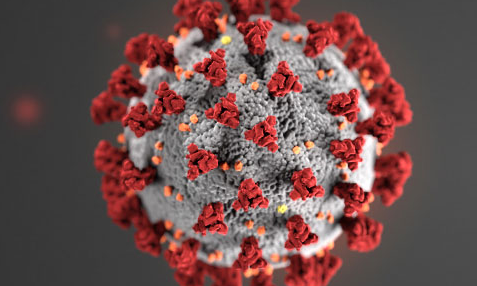Several countries have been administering anti-malarial drugs alone or in combination with other antibiotics as a treatment for high-risk COVID-19 patients. A large observational study, however suggests, it offers no benefit for COVID-19 patients.
New Delhi (ISJ): A large observational study suggests, treatment with anti-malarial drug chloroquine or its analogue hydroxychloroquine (HCQ), taken with or without the antibiotics azithromycin or clarithromycin, offers no benefit for patients with COVID-19.
The study analysed data from nearly 15,000 patients with COVID-19, receiving a combination of any of the four drug regimens and 81,000 controls.
Treatment with these medications among patients with COVID-19, either alone or in combination with macrolide antibiotics, was linked to an increased risk of serious heart rhythm complications in these patients, said Lancet.
Researchers suggest these treatment regimens should not be used to treat COVID-19 outside of clinical trials until results from randomised clinical trials are available to confirm the safety and efficacy of these medications for COVID-19 patients.
Chloroquine is an anti-malarial drug and its analogue, hydroxychloroquine, is used to treat autoimmune diseases including lupus and arthritis. Both drugs have a good safety profile as treatments for those specific conditions, and the findings do not imply patients should stop taking these drugs if they are prescribed for approved conditions. They have also been shown to have antiviral effects in laboratory tests and are therefore of interest as potential treatments for COVID-19.
“This is the first large scale study to find statistically robust evidence that treatment with chloroquine or hydroxychloroquine does not benefit patients with COVID-19. Instead, our findings suggest it may be associated with an increased risk of serious heart problems and increased risk of death,” said Prof. Mandeep R. Mehta, lead author of the study and Executive Director of the Brigham and Women’s Hospital Center for Advanced Heart Disease in Boston, USA.
“Randomised clinical trials are essential to confirm any harms or benefits associated with these agents. In the meantime, we suggest these drugs should not be used as treatments for COVID-19 outside of clinical trials,” Professor Mehta added.
In the study, researchers analysed data from 96,032 patients hospitalised between 20 December 2019 and 14 April 2020 with laboratory confirmed SARS-CoV-2 infection from 671 hospitals. All of the patients included in the study had either been discharged or had died by 21 April 2020.
The team also found that serious cardiac arrhythmias, which cause the lower chamber of the heart to beat rapidly and irregularly, were more common in the groups receiving either of the four treatment regimens.
They estimated that the excess risk attributable to the use of the drug regimen rather than other factors such as co-morbidities ranged from 34 percent to 45 percent. The authors explained that if the rate of mortality is 9.3 percent in the control group, after adjustment for the other clinical factors, the rate attributable to the use of the drug regimens would rise to 12.4-13.4 percent.
“Several countries have advocated use of chloroquine and hydroxychloroquine, either alone or in combination, as potential treatments for COVID-19. Justification for re-purposing these medicines in this way is based on a small number of anecdotal experiences that suggest they may have beneficial effects for people infected with the SARS-CoV-2 virus. However, we now know from our study that the chance that these medications improve outcomes in COVID-19 is quite low,” said Prof Dr. Frank Ruschitzka, Director of the Heart Centre at University Hospital Zurich, who co-authored the study.
Professor Christian Funck-Brentano of the Sorbonne University in Paris, France, who was not involved in the study, said: “This well-conducted observational study adds to preliminary reports suggesting that chloroquine, hydroxychloroquine, alone or with azithromycin is not useful and may be harmful in hospitalized COVID-19 patients.”


